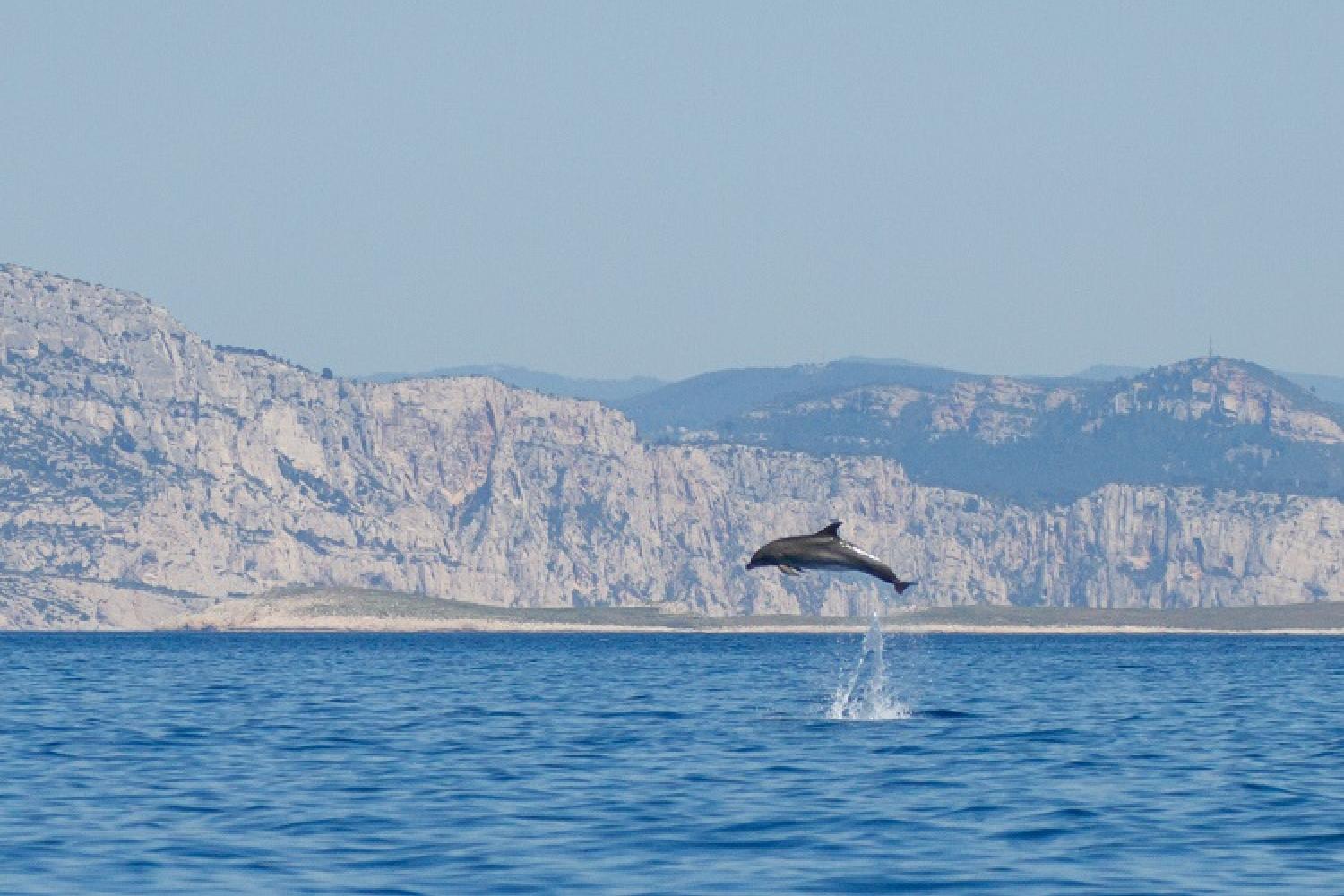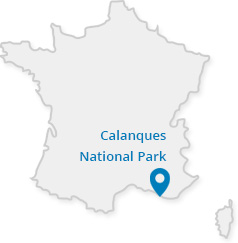The Calanques: an exceptional natural heritage
Between land and sea
The Calanques National Park has a coastline extending from Marseille to La Ciotat, via Cassis, the meeting point of hilly areas and a marine area punctuated with islands. It is home to a rich biodiversity, but it has been made vulnerable due to human presence.
On land, this area is covered in places with vegetation designed to withstand drought and sea spray. Its rugged geomorphology has allowed many of these natural environments to remain unspolit.
At sea, the National Park plunges its cliffs into the waters of the Mediterranean. There are a variety of underwater landscapes, such as caves and canyons, where many species live.





